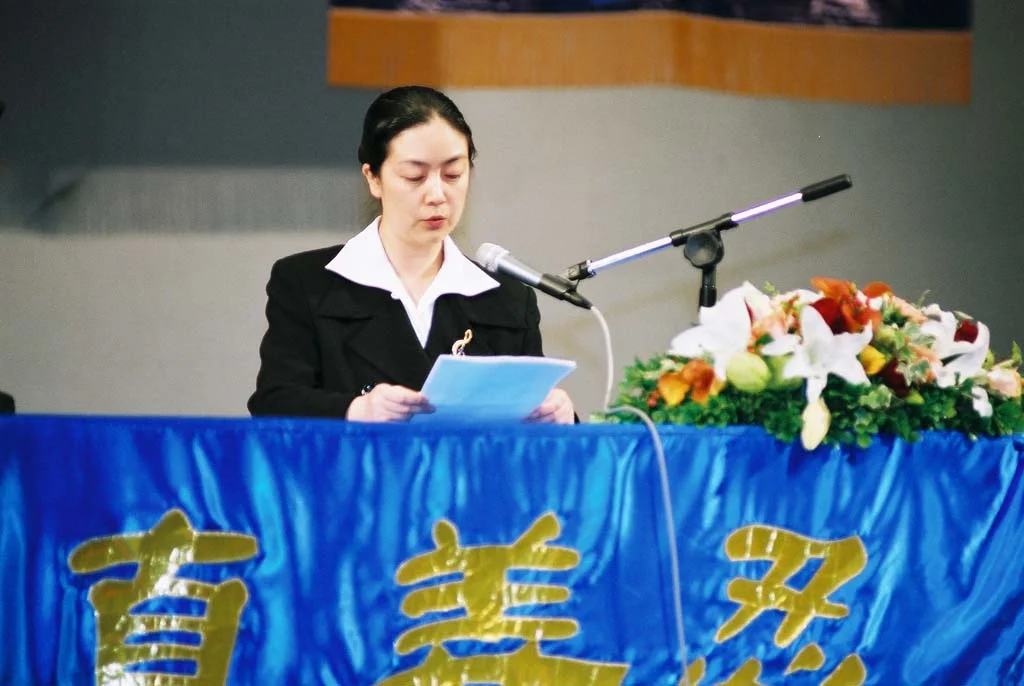"Each of Them a Branch -- and My Branch Missing": On Peking University's 120th Anniversary 「遍插茱萸少一人」-寫在北大建校百廿年
This year marks the 120th anniversary of Peking University, where I graduated. It is also the 30th anniversary for all alumni who entered Peking University in 1984 and graduated in 1988. I happen to belong to this "batch".
今天是我的母校北大建校一百二十週年,同時也是1984年入校、1988年畢業的校友們畢業三十週年。我剛好也是那年本科畢業的。
This banner says "Welcome all 1984 Alumni Coming Back to Mother School!" 1984級北大校友大聚會。
I knew a big "coming back and celebrating" event was in planning long ago, and every one was invited.
很早,我就知道,有校友在張羅一個「歸來仍少年」的團聚活動,特別歡迎1988年畢業的校友回校「共襄盛事」。
This banner says "Welcome all 1984 Alumni Coming Back to Mother School!" 1984級北大校友大聚會。
However, I cannot go back because the persecution of Falun Gong is still going on in China, as I am a Falun Gong practitioner.
但是……我是不能回去的,因爲我是法輪功學員;因爲中共對法輪功的迫害仍在持續。
This banner says "Welcome all 1984 Alumni Coming Back to Mother School!" 1984級北大校友大聚會。
Several days ago, an alumnus posted a group photo of five of my roommates in Peking University on Facebook and wrote such a post:
幾天前,一名同學在臉書上貼出五名我的北大室友美女們返校後的合照,並附上如下帖子:
My roommates and I at Peking University 30 years ago, when we were about to graduated in 1988. 三十前年,我與室友們畢業前夕在北大的合影。
"Five beautiful roommate ladies from the Geochemistry faculty of Peking University reunited at this important moment. However, it is a pity that one lady is missing. And she herself knows whom I refer to. "
「在這個重要時刻,北大地化專業一個宿舍五美女相聚,可惜遍插茱萸少一人。
那人是誰,她自己知道的。 」
My roommates and I at Peking University 30 years ago, when we were about to graduated in 1988. 三十前年,我與室友們畢業前夕在北大的合影。
I knew he referred to me, and I was very grateful that he posted the photo of my beautiful roommate on the Facebook for me to see-I hadn't seen them for decades since we graduated.
我當然知道,他指的是我,我也非常感激他以這種方式讓我看到了幾十年未見的室友和閨蜜們現在的模樣——她們仍然個個美麗仍舊,變化不大。
In his post, the alumnus also quoted a line from a very famous poem by a poet called Wang Wei in Tang Dynasty; and the poem goes like this:
對華人朋友來說,「遍插茱萸少一人」是不必解釋的,所以下面這個是寫給外國朋友的,您大可跳過繼續往下看:
On the Mountain Holiday Thinking of my Brothers in Shandong
九月九日憶山東兄弟
[唐] 王維
All alone in a foreign land,
獨在異鄉為異客,
I am twice as homesick on this day.
每逢佳節倍思親。
When brothers carry dogwood up the mountain,
遙知兄弟登高處,
Each of them a branch -- and my branch missing.
遍插茱萸少一人。
(—— Translated by Witter Bynner)
My roommates and I at Peking University 30 years ago, when we were about to graduated in 1988. 三十前年,我與室友們畢業前夕在北大的合影。
This poem is perhaps one of the most famous ones about people who wander in "a foreign land" missing their families.
這首傳誦千古的詩也許是表達遊子們思鄉之情的最著名的一首了吧。
And today for Falun Gong practitioners, and many other dissidents, who are driven out of their homeland because of the persecution in China, this poem from more than 1000 years ago sounds more heart-wrenching.
千餘年後的今天,對許多被迫背井離鄉的法輪功學員和異見人士來說,這首詩其實遠不足表達那種「被迫」流浪之痛與更加切膚的家國之恨。
However, I know I must be brave and overcome this kind of sadness and sourness in my heart to keep on fighting for the day when all of us can return to China safely and with dignity.
與此同時,我也知道,我需要繼續努力,爲能夠堂堂正正返回家園的那一天,能夠早日來臨。
And I somehow recalled a poem by my good friend Yuan Xi, a poet from White Cloud Poetry Society. I felt that this poem expressed very well what's in my heart and mind, so I used it as a reply to my alumnus who quoted Wang Wei's poem:
千餘年前王維的詩不足以言吾今日之志,然而,白雲詩社詩人元曦的一首詩倒更加貼切:
My Thoughts in Early Winter
西江月·初冬有懷
Wandering through foreign lands
Half of my lifetime has passed
Wherever I go
In this human world
I build another cottage as I cultivate myself
My dream of returning
Always revisiting
As strong as in the beginning
Carrying me over thousands of rivers and mountains.
半世異鄉為客,
平生人境結廬。
頻來歸夢總如初。
萬水千山飛度。
Don't tell me how wonderful and colorful this world is!
I only care about traveling freely
To rivers and lakes
Amidst mist and evening glow
Yet alas! For what reasons do I sometimes hesitate?
A faint sadness swells in my chest
As I vaguely remember
My real home in the heavens
Hidden beyond the white clouds.
莫道有情浮世,
煙霞自在江湖。
偶然何事感躊躇。
隱約白雲深處。
And by the way, the poem was translated into English by me.
另外,以上英文是我翻譯的,請多指點。











